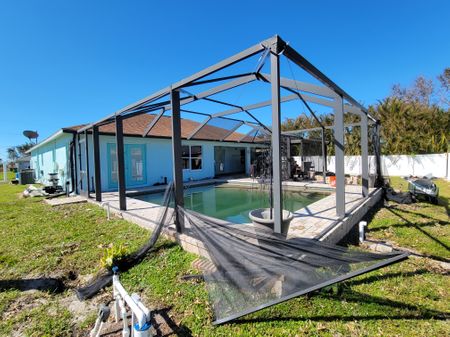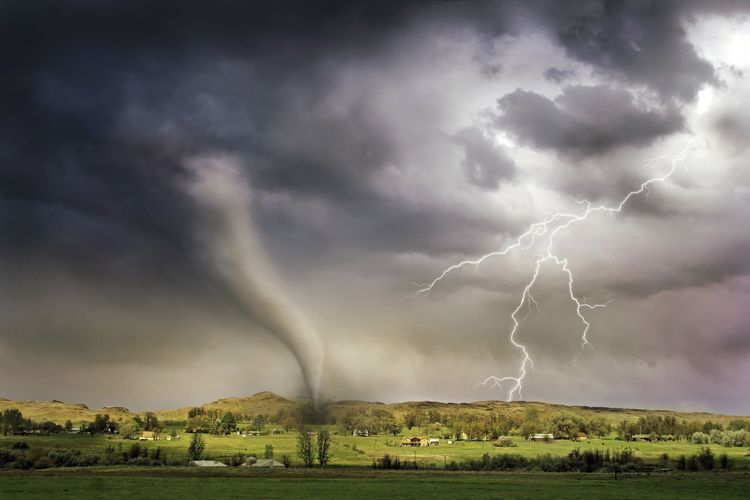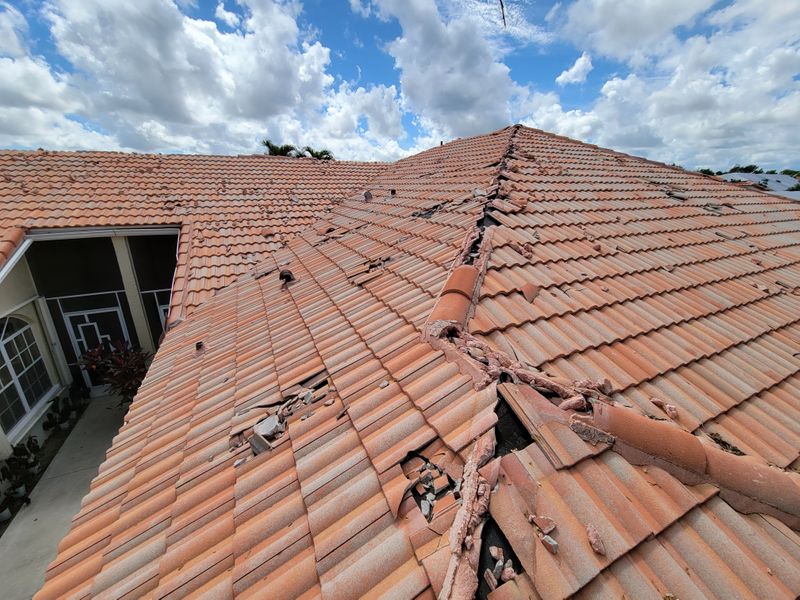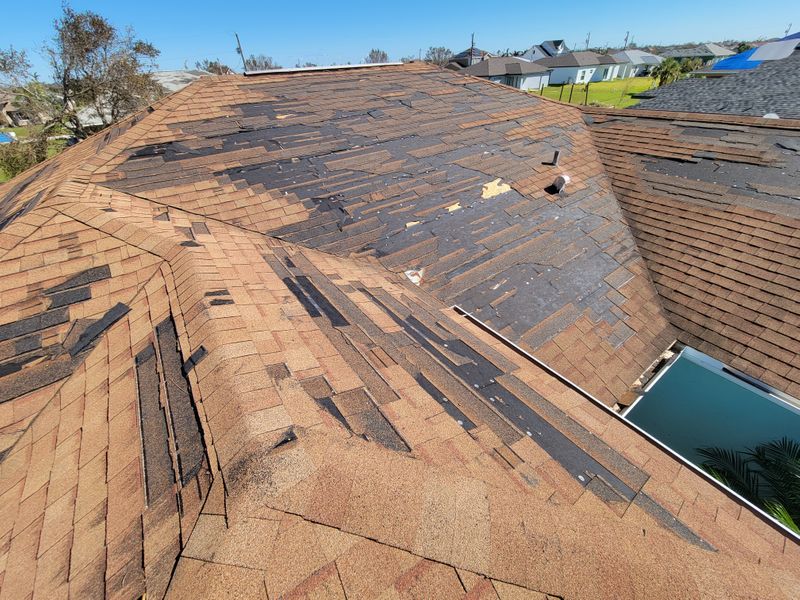Tornadoes, Wind, and Public Adjusters

Florida is no stranger to extreme weather, and homeowners in the state are all too familiar with the damaging effects of tornadoes and windstorms. These types of severe weather events can devastate properties, leaving behind a trail of destruction that often requires extensive repairs. Unfortunately, even after experiencing the financial hardship of damage, many homeowners face challenges when it comes to their insurance claims. Insurance companies may delay, underpay, or even deny claims, citing technicalities in the policy or incorrectly classifying the type of storm that caused the damage.
At Florida State Public Adjusters, Inc., we understand how stressful it can be to navigate the complexities of your insurance policy after a tornado or windstorm. Our team of experienced public adjusters is committed to maximizing your insurance settlement, working hard to ensure that you receive the full compensation you deserve. In this article, we’ll explore the types of windstorms and tornadoes that impact Florida homes, the issues with insurance companies incorrectly classifying storms, and the different types of deductibles that could affect your settlement.
Types of Windstorms
Florida's geographical location makes it highly susceptible to a variety of windstorms, including tornadoes, tropical storms, and hurricanes. Other states like Colorado aren't immune to wind damage either. Understanding the differences between these events and how they are categorized by your insurance company is crucial in maximizing your claim. Here are the most common types of wind-related events that can cause property damage in throughout the country:
Tornadoes
Tornadoes are violent, rotating columns of air that extend from a thunderstorm to the ground. These storms are capable of producing extreme winds that can destroy buildings, uproot trees, and cause significant damage to roofs and structural components. Tornadoes in Florida and Colorado are often associated with severe thunderstorms, and while they can be localized, their impact is often severe and widespread.
Hurricanes
While hurricanes may seem like the obvious causes of wind damage in Florida, not all windstorms fall into these categories. However, hurricanes still contribute to the most extensive wind damage in Florida, often causing damage through high winds, heavy rain, storm surges, and flooding.
Tropical Storms
Tropical storms, while inherently weaker than hurricanes, can still cause widespread devastation when they land. The winds, rains, storm surges, and floods associated with hurricanes are a major concern with tropical storms as well, but you may notice that the wind damage to your home is less severe. Believe it or not, insurance claims for tropical storms are harder to win than hurricane claims are!
Windstorms
Windstorms refer to any storm that produces high winds, which can cause widespread damage. Unlike tornadoes, windstorms may not have extreme rotational energy. But they can still bring winds strong enough to tear off roofs, break windows, and cause significant property damage. Florida frequently experiences windstorms, especially during the late summer and fall months when thunderstorms and tropical weather systems are common.
Why Insurance Companies May Delay or Deny Claims After Windstorms and Tornadoes
After a tornado or windstorm wreaks havoc on your property, it’s critical to file an insurance claim promptly. However, many homeowners are frustrated to find that insurance companies may delay or deny their claims. Some of the most common reasons for claim denial or delay include:

1. Misclassification of the Storm
One of the most significant issues homeowners face is insurance companies misclassifying the type of storm that caused the damage. For example, an insurer might mistakenly classify a tornado or windstorm as a hurricane or tropical storm. This misclassification can have serious financial consequences, as it may lead to the wrong deductible being applied to your claim.
2. Coverage Disputes
Insurance companies may dispute the extent of the damage or the cause of the loss. They might argue that the damage was caused by something other than the windstorm, such as wear and tear, neglect, or prior damage. Insurers often look for loopholes to minimize their payouts, even if the damage was directly caused by a tornado or windstorm.
3. Deductible Confusion
A significant factor in windstorm and tornado claims is the deductible. Especially in Florida, different types of deductibles may apply to wind and storm damage, and insurers sometimes incorrectly apply a higher deductible when a lower one should apply. This can drastically reduce the payout homeowners receive for necessary repairs.
4. Failure to Meet Policy Terms
Insurance companies may also deny claims if you fail to meet certain policy requirements. For example, if your roof was damaged by high winds but was not adequately maintained, an insurer might claim that your lack of proper upkeep led to the damage. Understanding your policy’s terms and conditions is essential to avoid unexpected pitfalls.
How the Misclassification of Windstorms Can Affect Your Claim
As mentioned, insurance companies sometimes incorrectly classify windstorms or tornadoes as hurricanes or tropical storms. This misclassification can result in a significant financial loss for homeowners. In Florida, the type of storm determines the deductible that applies to the claim, and tornadoes or windstorms may be subject to different deductibles than hurricanes.
Here are some of the key differences between these deductibles:

This tile roof in Town 'n' Country, FL was shredded by the tornadoes and winds spawned from Hurricane Milton.
Florida homeowners are familiar with the concept of a hurricane deductible. This deductible typically applies when a tropical storm or hurricane is involved, and it is often higher than the standard deductible. Hurricane deductibles may range from 2% to 10% of the insured value of the home, with 5% being the most common. This can result in a significant out-of-pocket expense for homeowners. However, this deductible usually only applies if the storm is officially categorized as a hurricane by the National Hurricane Center.
2. Windstorm Deductible
Windstorm deductibles apply to damages caused by windstorms that are not hurricanes. For example, if a tornado or severe windstorm causes damage to your home, a windstorm deductible may apply. In some cases, the windstorm deductible can be lower than a hurricane deductible, but this varies by policy. If your insurance company incorrectly classifies a windstorm as a hurricane, you could be charged a much higher deductible than is warranted.
More and more Florida homeowners are also subject to a separate roof deductible, which applies specifically to damage to the roof caused by wind or storm-related events. Roof deductibles are often higher than standard deductibles, and in some cases, they may apply in addition to a windstorm or hurricane deductible. This can significantly reduce the payout you receive for roof repairs or replacement.
4. Standard Deductible
In cases where a storm is classified as neither a hurricane nor a windstorm, your standard homeowners deductible may apply. This deductible is typically lower than a hurricane or windstorm deductible, meaning that the payout may be higher if the damage is covered under this classification.
Wind Claims and Policy Limitations
One of the most frustrating aspects of wind claims is navigating policy exclusions and limitations. Insurance carriers often use these tactics to minimize payouts:
Maintenance Issues
Insurers may argue that your damages resulted from poor maintenance rather than a covered event, even if the damage was caused by a windstorm or other peril. They may pass the burden of proof onto you, despite the fact that most policyholders don't have recent pictures or other documentation regarding their roofs.
Cosmetic Damage Exclusions
Some policies exclude coverage for damage that’s considered “cosmetic,” such as cracked roof tiles or degranulated shingles, even if the damage affects the roof’s functionality. Other policies impose ceilings of as little as 1% of your coverage limit for continuous and matching damages, which can reduce your home's value even after repair.
Depreciation Schedules
If your roof is older, the insurer may offer a reduced payout based on the roof’s age and remaining lifespan. And more recent insurance policies may give your carrier the option to only offer that reduced payout, failing to reimburse you for the additional cost of replacing your roof if that becomes necessary.
Our team understands these tactics and knows how to challenge them effectively, ensuring you receive the compensation you’re entitled to.
How We Can Help
Dealing with windstorm or tornado damage to your home can be frustrating, especially when your insurer tries to minimize your payout or delay your claim. We specialize in helping homeowners navigate the complexities of insurance claims, ensuring that they receive the full compensation they are entitled to.
Here’s how we can help:

This shingle roof in Lee County, FL had several elevations torn off entirely after Hurricane Ian.
1. Accurate Damage Assessment
We conduct thorough inspections of your property to assess all windstorm or tornado-related damage. Our team is highly experienced in identifying hidden damage, such as structural damage to roofs, framing, and other critical components of your home, ensuring that every aspect of your claim is properly accounted for.
2. Review and Interpretation of Your Policy
Insurance policies can be complex and difficult to understand. We review your policy to ensure that all relevant coverage applies, and we help you understand the various types of deductibles and limits that may impact your claim. If your insurer is incorrectly classifying the storm or applying the wrong deductible, we advocate on your behalf to correct these errors.
3. Comprehensive Documentation
From photos and repair estimates to expert reports, we compile the evidence needed to present a strong case for your claim.
4. Expert Negotiation and Advocacy
Once we’ve assessed the damage and reviewed your policy, we handle all negotiations with your insurance company. We have extensive experience dealing with insurance adjusters and know how to present your case in the most effective way to ensure a fair settlement. We fight for you to make sure you’re not left with a settlement that doesn’t fully cover your repairs.
5. Support Every Step of the Way
From filing the claim to resolving disputes, we’re with you at every stage of the process, reducing your stress and allowing you to focus on restoring your home.
Why Choose Us?

When dealing with the aftermath of a windstorm or tornado, you need a partner who understands the complexities of Florida’s insurance landscape.
Here’s why homeowners, business owners, landlords, tenants, and property managers trust us:
- Licensed Professionals: Our team is fully licensed and bonded in Florida and Colorado, giving us the knowledge and advanced training to represent you with confidence.
- Unmatched Expertise: With years of experience handling windstorm claims, we know how to navigate the nuances of different policies and coverage options.
- Personalized Service: Every claim is unique, and we tailor our approach to meet your specific needs and circumstances.
- Client-Centered Model: Unlike the carrier's field adjusters, we work exclusively for policyholders — your best interests are always our #1 priority.
- Proven Success: We've helped thousands of Florida and Colorado policyholders secure fair settlements, even in the face of difficult wind claims.
We will always offer the following:
- Free, no-obligation consultations
- Experienced, licensed public adjusters
- Thorough, accurate damage assessments
- Aggressive negotiation with insurers
- Complete claim management, from start to finish
If you’ve experienced damage from a tornado or windstorm in Florida, we are here to help you navigate the claims process and maximize your insurance settlement. Don’t let insurance companies take advantage of you — contact us today for a free consultation.
Call (888) 518-5678 or email admin@floridastatepa.com to get started!